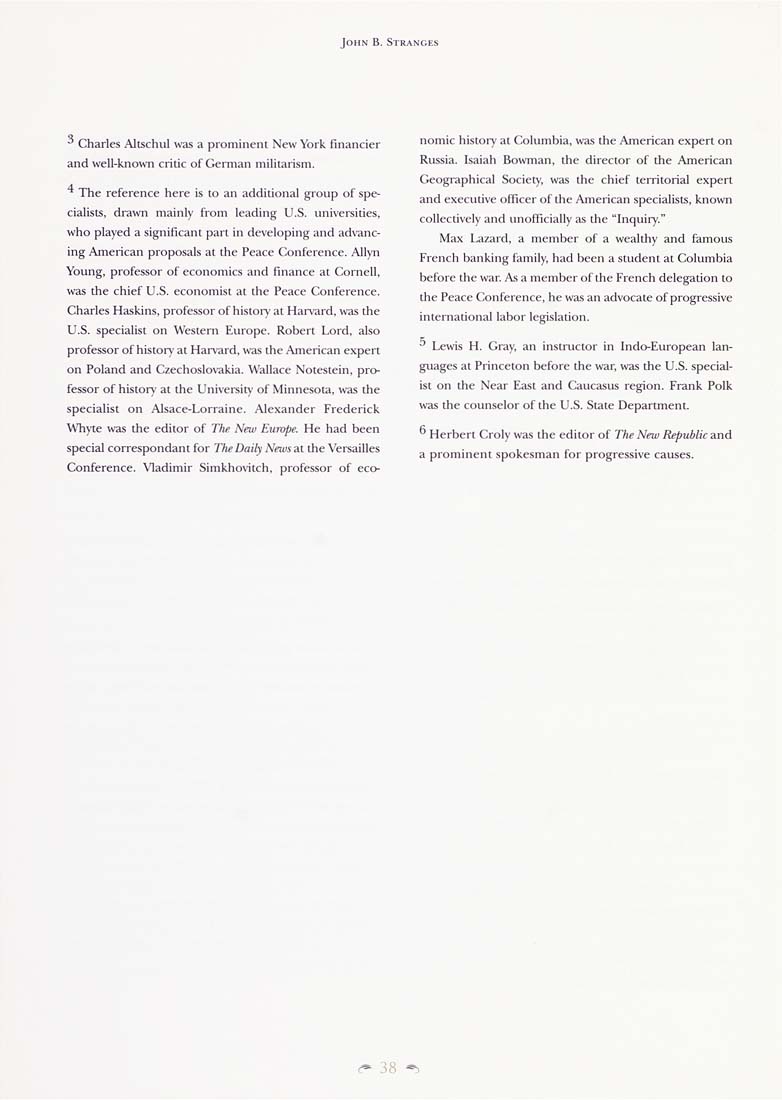Columbia Library columns (v.44(1995))
(New York : Friends of the Columbia Libraries. )
|
||
|
|
|
|
| v.44,no.2(1995:Autumn): Page 38 |

John B. Stranges ■* Charles Altschul was a prominent New York financier and well-known critic of German militarism. ^ The reference here is to an additional group of spe¬ cialists, drawn mainly from leading U.S. universities, who played a significant part in developing and advanc¬ ing American proposals at the Peace Conference. Allyn Young, professor of economics and finance at Cornell, was the chief U.S. economist at the Peace Conference. Charles Haskins, professor of history at Harvard, was the U.S. specialist on Western Europe. Robert Lord, also professor of history at Hanard, was the American expert on Poland and Czechoslo\'akia. Wallace Notestein, pro¬ fessor of history at the University of Minnesota, was the specialist on Alsace-Lorraine. Alexander Frederick Wh)te was the editor of The Neiv Europe. He had been special correspondant for Tlie Daily News at the Versailles Conference, \ladimir Simkhovitch, professor of eco¬ nomic history at Columbia, was the American expert on Russia. Isaiah Bowman, the director of the American Geographical Society, was the chief territorial expert and executive officer of the American specialists, known collectively and unofficially as the "Inquiry." Max Lazard, a member of a wealthy and famous French banking family, had been a student at Columbia before the war. As a member of the French delegation to the Peace Conference, he was an advocate of progressive international labor legislation, "■ Lewis H. Gray, an instructor in Indo-European lan¬ guages at Princeton before the war, was the U.S. special¬ ist on the Near East and Caucasus region. Frank Polk was the counselor of the U.S. State Department. " Herbert Croly was the editor of The New Republic and a prominent spokesman for progressive causes. r^ 38 ^ |
| v.44,no.2(1995:Autumn): Page 38 |







